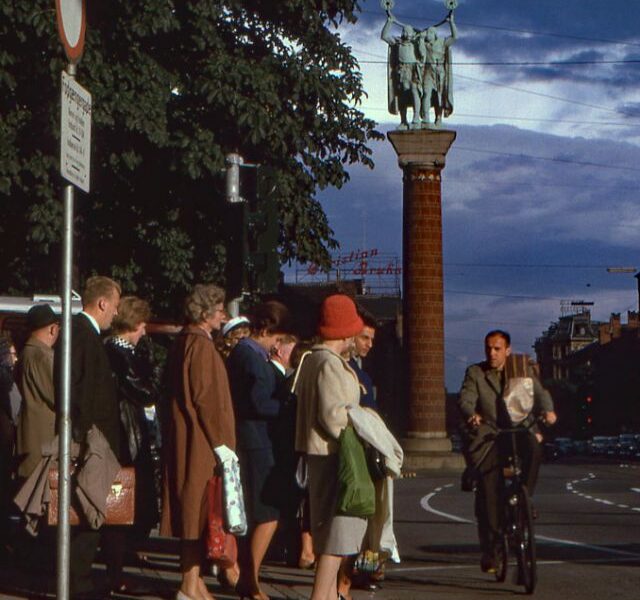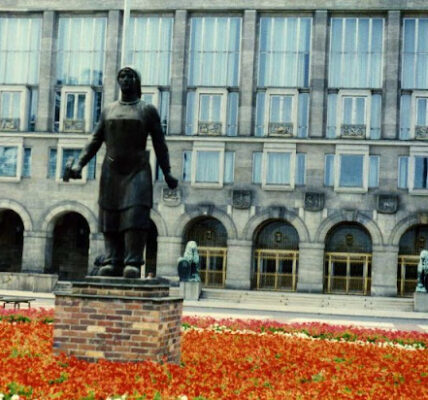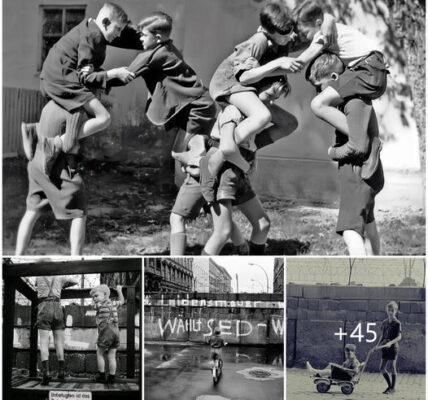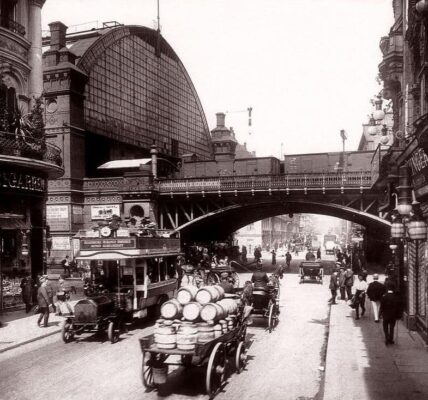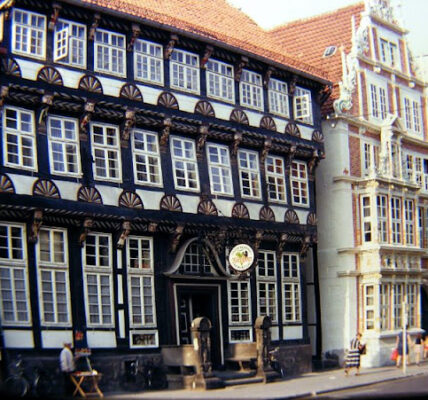WWII devastated both the European economy and countryside. With the help of monetary aid from the United States and other countries, Western Europe was able to rebuild itself relatively quickly. In 1951, using the infrastructure that had been put in place to disburse the U.S. aid, six countries, West Germany, Luxembourg, France, Netherlands, Belgium, and Italy, formed the European Coal and Steel Community, or ECSC. The ECSC built stronger bonds between the six nations and pooled important industrial resources like steel and coal.
Later in the 1950s, these same six nations looked to integrate their economies more than just pooling resources, creating the European Economic Community and EURATOM in 1957. The European Economic Community (EEC) tried to begin the process of turning the economies of these six nations into one common market, trying to reduce tariffs, while also making it easier for people to cross the borders to live and work.
Ironically, these six countries were making it easier to cross each other’s borders just as the Soviet Union was making its own borders harder to cross. In 1961, in barely two weeks, the Soviet Union constructed the Berlin Wall to keep East Berliners from fleeing the communist East to the capitalist West. Tensions in the 1960s in Europe were high as incidents like the 16-hour standoff at Checkpoint Charlie in Berlin and the Cuban Missile Crisis threatened to cause another global war – with Europe the most likely battlefield. In 1968, a student demonstration in Prague turned into a countrywide protest for democracy in Czechoslovakia. Within a few short weeks, the Soviet Union had quashed the uprising and reinstalled a hardline communist government.
These amazing photos from Dave’s Old Slides that captured street scenes of Europe in the 1960s.
 |
| Zagreb, Croatia, Yugoslavia, 1960 |
 |
| Vlaška ulica, Zagreb, Croatia, Yugoslavia, 1960 |
 |
| At the Zagreb Trade Fair, Croatia, Yugoslavia, 1960 |
 |
| Balham, London, England, circa 1960s |
 |
| Ban Jelačić Square, Zagreb, Croatia, Yugoslavia, 1960 |
 |
| Dubrovnik, Croatia, Yugoslavia, 1960 |
 Advertisement
|
| Exeter Cathedral Close, England, 1960 |
 |
| Justizpalast, Munich, Germany, 1960 |
 |
| Otočec Castle, Slovenia, Yugoslavia, 1960 |
 |
| Trafalgar Square, London, England, circa early 1960s |
 |
| Copenhagen bus stop, Denmark, August 1963 |
 |
| Copenhagen, Denmark, 1963 |
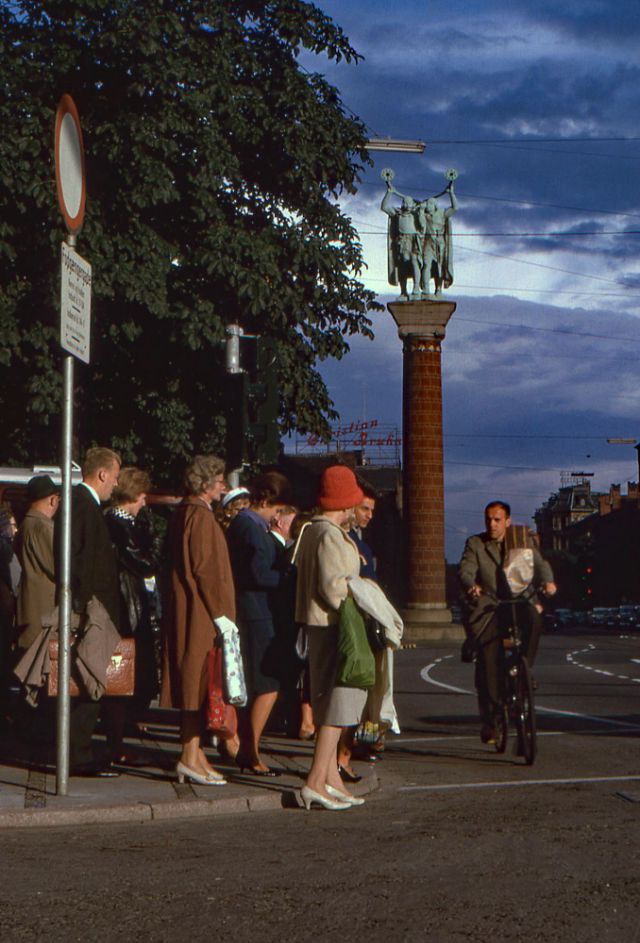 |
| Corner of Strøget (Frederiksberggade) and Rådhuspladsen, Copenhagen, Denmark, August 1963 |
 |
| Street scene in Ireland, 1963 |
 |
| Vesterbrogade, Copenhagen, Denmark, 1963 |
 |
| Coach at Martigny railway station, Switzerland, 1964 |
 |
| Madrid, Spain, 1964 |
 |
| Tourists in Piazza della Signoria, Florence, Italy, 1964 |
 |
| Viaducto de Segovia, Madrid, Spain, 1964 |
 |
| A tour group with their coach, Black Forest, Germany, 1965 |
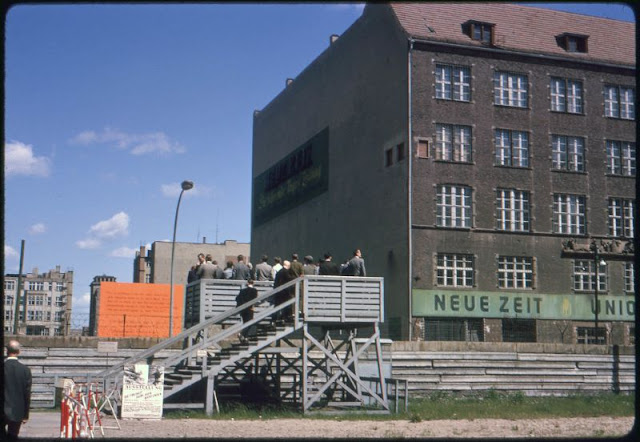 |
| Checkpoint Charlie, Berlin, Germany, 1965 |
 |
| Checkpoint Charlie, Berlin, Germany, 1965 |
 |
| Grand-Place, Brussels, Belgium, 1965 |
 |
| Greek Street, Soho, London, England, 1965 |
 |
| Market at Arnhem, Netherlands, 1965 |
 |
| Market Square, Bruges, Belgium, 1965 |
 |
| Outside Huddersfield Railway Station, England, 1965 |
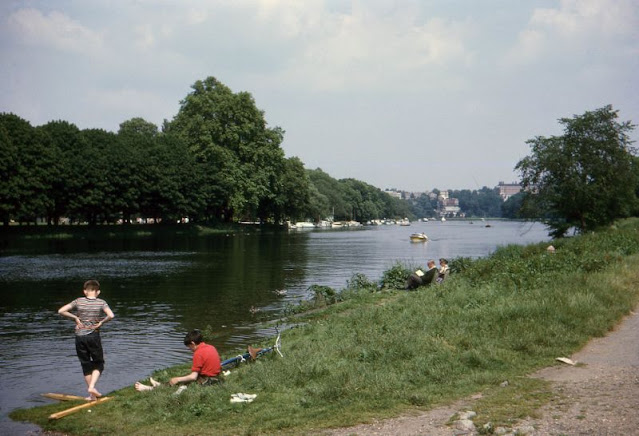 |
| Petersham, England, 1965 |
 |
| Piccadilly Art Market, Green Park, London, England, 1965 |
 |
| Rupert Street Market, Soho, London, England, 1965 |
 |
| Stockholm, Saturday afternoon, Sweden, 1965 |
 |
| Vaduz, Liechtenstein, 1965 |
 |
| Turkey, 1967 |
 |
| Lapad Beach, Dubrovnik, Croatia, Yugoslavia, 1968 |
 |
| Lapad Beach, Dubrovnik, Croatia, Yugoslavia, 1968 |
 |
| Petrovac, Montenegro, Yugoslavia, 1968 |
 |
| Wye Valley Hotel, Wales, 1968 |
 |
| At a café in Paris, France, 1969 |
 |
| Roadside picnic, Lincolnshire, UK, 1969 |
 |
| Stock-im-Eisen-Platz, Vienna, Austria, 1969 |
